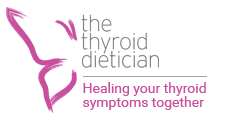When I tell people that I am studying to become a functional medicine practitioner, people usually look at me as if I just joined the crazy farm. The truth is, it is my humble belief that functional medicine is the future of medicine.
As more health practitioners realize that conventional practices are limiting to really helping others with a chronic condition, lifestyle interventions are placed at a higher priority than simply giving pills alone.
Do not get me wrong. There is truly a place for pharmaceutical intervention and in many cases can be a welcome addition to the therapy. What I am saying is that it is not the only way to help someone to feel better. Functional medicine is about an integrative and more holistic approach to healing. It differs from conventional medicine in that it accepts every person’s bioindividuality, their journey from birth until where they are today, key lifestyle components such as nutrition, stress management, sleep, spirituality, and community, and switches from a practitioner-led practice to a patient-led one. The entire essence of functional medicine comes from the ability of a health practitioner to listen first and fore-most and understand where the patient is in their journey in order to offer them science-based advice and support.
Another large component of functional medicine is finding one’s root cause. Someone can have several root causes and working with a functional medicine practitioner can help you to find which ones.
For Hashimoto’s Thyroiditis, functional medicine can look at several areas in which you may find your root cause. As I was a guinea pig on myself, it took me years to put the pieces of the my thyroid puzzle together. Below is a quick guide to help you to understand where your root causes may lie.
When In Doubt, Start With The Gut
Unless you have been living under a rock lately, you most likely know that the digestive tract is the main driver of disease in many cases. When you have issues such as bloating, cramping, excess gas, constipation/diarrhea, it is a big sign that your gut is trying to tell you something. In autoimmune disease, food intolerances are very likely to cause an autoimmune attack. This is why the autoimmune paleo protocol was created by Dr. Sarah Ballantyne. It offers a patient-centered approach to healing the gut and therefore symptoms of Hashimoto’s thyroiditis and other autoimmune conditions.
If you are new to the hypothyroid game, it is usually simplest to start with an elimination diet. An elimination diet is the gold standard for testing for food intolerances (and ironically the cheapest, it costs nothing!). For most of my patients, I have them eliminate gluten, dairy, sugar, and processed foods from their diet from one to three months. After this, depending on the patient, I either lead them into the full AIP elimination phase or begin to add back foods one at a time to test for reactions or symptoms. For example, if you add back goat’s yogurt and your intestines swell up like a balloon, it is usually a sign that you are not able to tolerate dairy.
Please note that a reintroduction may not be tolerated once you put it back in your diet, however, it can be tolerated when added back at a later date. This is so because you give your intestines a longer period in which to heal.
For all those that need more guidance on how to follow an elimination diet, I highly recommend graduates of the Autoimmune Paleo Protocol. They are armed with the right tools to help guide you on your path to healing. You can find them here: http://aipcertified.com/coach-directory/
Check For Viral, Bacterial, Fungal, or Parasitic Infections
In thyroid disease, common viral, bacterial, and fungal infections to test for are the Epstein-Barr Virus, H.Pylori, Candida albicans, and Blastocystis Hominis. In one case study done in 2015, the eradication of the parasite Blastocystis Hominis helped the patient get back to the euthyroid state.1 In other words, the parasite was their root cause!
Check For Nutrient Deficiencies
In clinical practice, most patients that I see have nutrient deficiencies that need to be addressed. For the thyroid patient, these typically include vitamin D, selenium, zinc, copper, iron, B vitamins like B12 and folate, and vitamin A. Many times, supplementing with high quality supplements can help people to feel much better in a short period of time (of course in conjunction with therapies used to treat the gut).
Improve Your Sleep
Our parents did not make us go to bed early simply for them to get some peace and quiet. They knew sleep was a form of medicine. Most of my patients typically have issues falling or staying asleep throughout the night. This can be caused by many things like adrenal dysfunction, nighttime rituals, nutrient deficiencies, or food intolerances. In general, I advise patients to avoid screen time one hour before bedtime, to sleep in a dark room, to take a bath with essential oils if preferred, or to take a magnesium supplement before bedtime to help with a higher quality of sleep.
Do Something About That Darn Stress
Many times, patients go to the doctor simply to hear, “You don’t have anything, it’s just stress.” Although that may be a correct diagnosis, more often than not, advice is not given as to how to decrease the stress, increase energy, and improve one’s mood.
Although endocrinologists to not accept adrenal fatigue as a real diagnosis, from my experience, adrenal dysfunction does exist. This is when the body produces too much or too little of a stress hormone called cortisol. Under normal physiologic conditions, cortisol is highest in the morning (which gives us that bright-eyed and bushy-tailed feeling) and lowest before bedtime. If you are a person that has bitten off more than they can chew (which is the case for many of us), too much or too little cortisol is produced at odd times of the day causing issues such as insomnia, feeling exhausted by 3pm, or waking up feeling like you did not sleep at all.
Some simple ways to address this issue is to prioritize your activities throughout the day and not be hard on yourself if some of them were not accomplished, make sure to get some high quality sleep, practice prayer or meditation, dedicate half an hour of the day to do an activity you enjoy or makes you laugh, exercise, and of course, eat real food.
From my experience as a nutrition coach, most hypothyroid symptoms are exacerbated by stressful lifestyles. Finding ways to keep calm as much as possible and finding a balance in life has helped many of my patients to feel better and to regain their health.
Join A Community
Dr. Mark Hyman coined a phrase called sociogenomics, which essentially relates to how having a supportive community around you positively affects your genes and ultimately your health outcome. For a lot of people, the root cause of their symptoms is as simple as being surrounded by toxic people. When people remove toxic people and surround themselves with like-minded, supportive people, they surprisingly start to feel much better and are more inspired to reach their health goals. So, find a community (like this one)that will help you to grow and feel better.
The most important piece of the puzzle for finding your health is you. Read. Ask questions. Be part of your healing journey. This is my mission in bringing the Thyroid Healing Summit to you. I want you to change your health for the better and have a positive impact on those around you. In this way, you become part of a growing community whose vision is to help one another to feel our best and live our lives to the fullest.
References:
- Rajič, B., Arapović, J., Raguž, K., Bošković, M., Babić, S.M. and Maslać, S., 2015. Eradication of Blastocystis hominis prevents the development of symptomatic Hashimoto’s thyroiditis: a case report. The Journal of Infection in Developing Countries, 9(07), pp.788-791.




